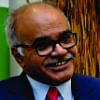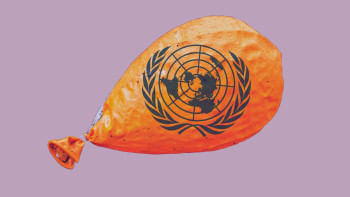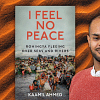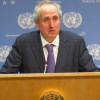The United Nations needs reforms

Today is October 24, the day the United Nations (UN) came into being in 1945. From the ashes of World War II, the UN was established to rebuild anew the war-ravaged world and to ensure for humankind the freedom from fear and the freedom from want. For more than eighty years, this global organisation has been working for world peace and global development. Yet, whenever the issue of the UN is raised, everyone talks of its failures, which definitely overshadows its successes.
The limitations of the UN are often presented from political angles. However, the role and the relevance of this entity are aptly justified when the question of what would have happened to the war-torn, conflict-ridden violent world in the absence of the UN is raised. In different parts of the world, in wars and conflicts, the UN has not only been active during the talks and discussions to reach compromises, but also served as a catalyst in achieving positive results. During various regional and inter-state conflicts, the work of the UN Peacekeeping to restore peace and minimise violence has been highly appreciated in all quarters. UN officials have relentlessly been working to help refugees from wars and conflicts.
In the area of economic and human development, the work and the achievements of various UN agencies are well-known. The activities of the United Nations Children's Fund (UNICEF), World Food Programme (WFP), Food and Agriculture Organization (FAO), United Nations Educational, Scientific and Cultural Organization (UNESCO), and United Nations Development Programme (UNDP) have raised issues of global development to new heights and significantly contributed to poverty eradication and ending the hunger in many countries. There is no denying the fact that the UN was at the forefront of formulating and implementing the global Millennium Development Goals (MDGs) and the Sustainable Development Goals (SDGs). Overcoming many obstacles, the WFP, the United Nations Office of the High Commissioner for Refugees (UNHCR), and the United Nations Office of the High Commissioner for Human Rights (UNOHCHR) have been constantly active in many countries to fight famines, to protect and ensure human rights and to help millions of refugees. For their work, the UN itself and its different agencies have received the Nobel Prize on different occasions,
Despite all its successes and achievements, the list of UN failures is not short either. Because of its structural framework and nature, the interventions, controls and regulations of its affairs by big powers, and UN's limited autonomy in its arena of work, the relevance and the effectiveness of the UN have long been questioned. Nevertheless, the UN's birth, at a specific time in the context of a global reality, should be considered from a historical perspective. During the last eight decades, the world has changed, and the background in which the UN was established has shifted. As a result, this organisation is now incapable of meeting the demands of the present day, not to speak of the expectations of the future. Under such circumstances, a structural reform of the UN has become inevitable and such reforms may be effective in at least five areas.
The first area is of course the UN Security Council. While the ethical foundation of the UN follows a democratic method as in "one country, one vote," the constitution and the work modalities of the present Security Council are inconsistent with that democratic value. Reforms are needed in two fundamental areas—the structure of the Security Council and the nature of its operational modalities. First, the system of having permanent members at the Security Council and their "veto" powers must be abolished. Compared to 1945, the number of states in the world today has more than doubled. So, the number of Security Council members must be increased from its current level and the members would be elected by the General Assembly for a five-year term. Every Security Council member will have one vote and no member will enjoy the permanent member status or the veto power.
In terms of its scope of work, all global political affairs will come under the mandate of the Security Council. The name of the reconstituted Security Council may be changed to "Political Security Council" and it will not have its deliberations in a closed-door setting, which is the norm now. The meetings, debates and decisions of the Security Council should be open to the public. These changes are necessary for the democratisation of the Council.
The second reform pertains to the UN Economic and Social Council (ECOSOC). In the present world, economic security is as important as political security. With the reconstitution of the current 54-member Economic and Social Council (ECOSOC), an "Economic Security Council" can be formed. The council's main focus will be to tackle the threats of global economic insecurity and the relevant crises. This council will also oversee the work on and achievements of the SDGs at the global level. The membership of the reconstituted Economic Security Council can be reduced to 25 from its current level of 54. The General Assembly would select ECOSOC members and the council's work would be based on the principle of "one member, one vote."
The third reform may be in the combined arena of the World Bank and the International Monetary Fund. Since both these organisations are part of the broader UN family, the two institutions can be combined to form a "World Central Bank." The main tasks of this organisation would be to ensure the stability of the global economic activities, stabilise the international financial markets, influence and regulate global financial institutions, and maintain liquidity at the global level. Taking the UN as the base, the institutional framework and the activities of the proposed organisation may be decided through discussions and negotiations.
The fourth reform may be in the area of existing UN councils and agencies. For example, what is the role of the UN Trusteeship Council in the modern world? There was a need for this body in the aftermath of World War II, in light of the geopolitical realities of that time. But given the realities of the present-day world, the Trusteeship Council has lost its utility since all the trust territories have either attained self-governance or independence. It can now be scrapped. Similarly, how many of us know about the UN organisation for outer space or what it does? This body should also be shuttered. There are too many UN agencies and many are characterised by duplication of functions and hugely uncoordinated activities. There should be an evaluation of the UN agencies, followed by an immediate restructuring of the overall framework. In the process, some agencies should be closed and some should be merged with others.
The fifth reform should be in the area of financing the UN. In the current organisational structure of the UN, big powers do not let it work effectively and influence its activities because they control the resource envelope of the UN. The United Nations has become a financial hostage of the richest nations, from which the institution must be freed. To do that the developing world would need to take a different financial role. Financial contributions to the UN by big and powerful developing countries like China, India, Brazil, South Africa, Nigeria and the oil-rich countries of the Middle East must increase so that the developing world has a solid voice and a stronger handle on the workings of the UN system. Thus, the financial structure of the UN needs to be overhauled.
For the last eight decades, the UN as an institution, has played a meaningful role at the global level. The value and relevance of a concept like the United Nations has not diminished at all, rather it has increased. In that changed context, reforms of that institution have become inevitable. Time demands it.
Selim Jahan is the former director of UNDP's Human Development Report Office at UNDP in New York.
Views expressed in this article are the author's own.
Follow The Daily Star Opinion on Facebook for the latest opinions, commentaries and analyses by experts and professionals. To contribute your article or letter to The Daily Star Opinion, see our guidelines for submission.

 For all latest news, follow The Daily Star's Google News channel.
For all latest news, follow The Daily Star's Google News channel. 











Comments